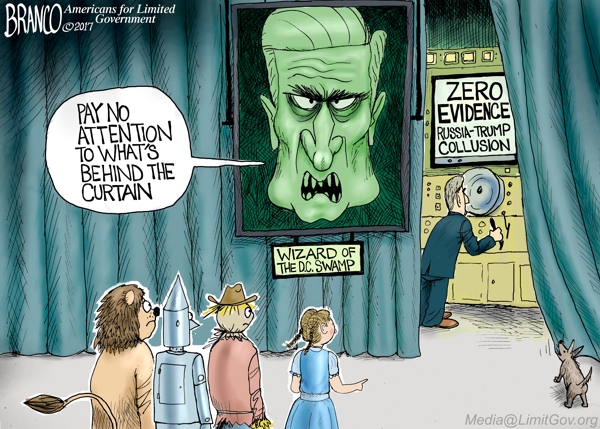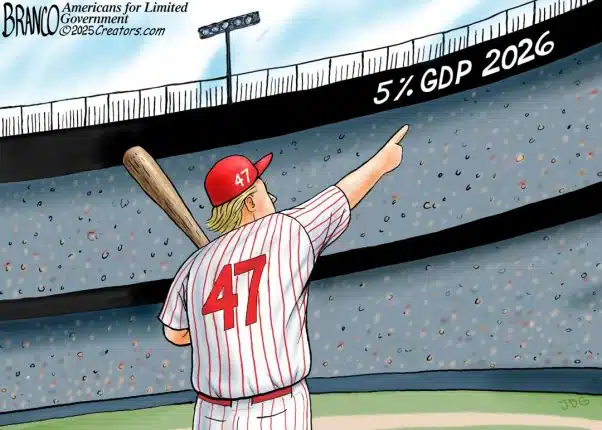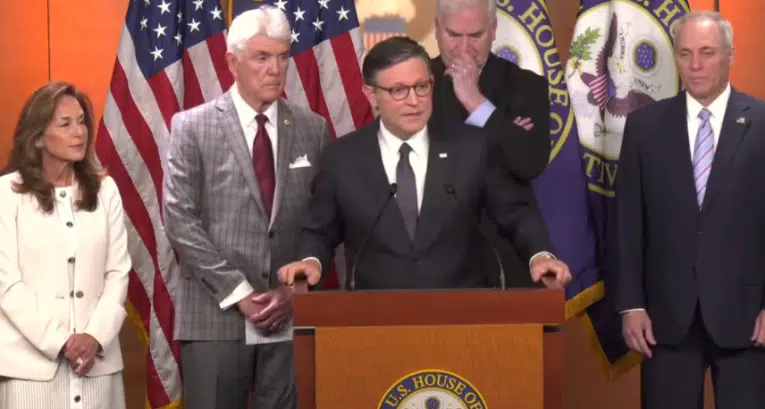When Deputy Attorney General Rod Rosenstein met with President Donald Trump on April 12, the President was assured that he was not the target of any investigation by Special Counsel Robert Mueller, Bloomberg reports.
This raises an interesting question: Why is there even a special counsel then?
On March 2, 2017, Attorney General Jeff Sessions recused himself “from any existing or future investigations of any matters related in any way to the campaigns for President of the United States.”
Sessions said he had done so under 28 CFR 45.2, which states Justice Department employees must recuse themselves from any “criminal investigation or prosecution if he has a personal or political relationship with … an elected official, a candidate (whether or not successful) for elective, public office, a political party, or a campaign organization.”
This implied heavily that there was at least a criminal investigation — rather than a counterintelligence investigation — already in the works. And based on his statement, it also implied that the investigation was into either President Trump or the Trump campaign itself, which Sessions had participated in.
On May 9, 2017, under recommendation by Deputy Attorney General Rod Rosenstein, Trump fired then-FBI Director James Comey, explaining that part of his reasoning included “I greatly appreciate you informing me, on three separate occasions, that I am not under investigation, I nevertheless concur with the judgment of the Department of Justice that you are not able to effectively lead the Bureau.”
On May 17, 2017, Rosenstein appointed Robert Mueller as special counsel by Deputy Attorney General Rod Rosenstein to investigate, mainly, “any links and/or coordination between the Russian government and individuals associated with the campaign of President Donald Trump…”
That was the first confirmation that indeed the investigation was looking directly at the campaign. But it did not allege a crime. It just said Mueller was to investigate “any matters that arose or may arise directly from the investigation” and that “If the Special Counsel believes it is necessary and appropriate, the Special Counsel is authorized to prosecute federal crimes arising from the investigation of these matters.” It was an open-ended book.
Was it supposed to be an investigation into the firing of Comey? An obstruction of justice case? Who knows?
What is clear is that the special counsel appointment requires under 28 CFR 600.1 that “in cases in which the Attorney General is recused, the Acting Attorney General, will appoint a Special Counsel when he or she determines that criminal investigation of a person or matter is warranted and … That investigation or prosecution of that person or matter by a United States Attorney’s Office or litigating Division of the Department of Justice would present a conflict of interest for the Department or other extraordinary circumstances…”
Again, there needed to be a crime to investigate from the outset. As the National Review’s Andrew McCarthy, a former federal prosecutor, has argued for more almost a year, Rosenstein had not followed the regulation.
It was only on a post-hoc basis that Rosenstein issued a memorandum in Aug. 2017 alleging actual crimes, and only then after one-time Trump campaign manager Paul Manafort’s house had already been raided in July 2017.
In addition to investigating whether Manafort “[c]omitted a crime or crimes by colluding with Russian government officials with respect to the Russian government’s efforts to interfere with the 2016 election for President of the United States, in violation of United States law,” which would have been within the scope of the Sessions recusal, Mueller was also tasked to see if Manafort “[c]omitted a crime or crimes arising out of payments he received from the Ukrainian government before and during the tenure of President Viktor Yanukovych.”
But when the In the 31-page indictment of Manafort and Richard Gates was presented, Russia was mentioned four times, naming Manafort’s company, Davis Manafort Partners, Inc., which had some staff in Russia, and that Manafort’s client, former Ukrainian President Viktor Yanukovych and his Party of the Regions was “pro-Russia,” and that after the civil war began in Ukraine, Yanukovych fled to Russia.
There was no mention of the Russian government or any individuals working for the Russian government. Nor any mention of the 2016 election campaign for President Trump. It had all the appearances of having gone beyond the scope of Sessions’ original recusal.
Certainly the investigation had started out looking at Trump and his campaign, in 2016, when the investigation was launched in July 2016 and then a Foreign Intelligence Surveillance Act (FISA) court warrant request was granted in Oct. 2016 to spy on the campaign.
In an ABC News interview with Comey that aired April 15, the former FBI Director confirmed that the FBI’s legal view that an investigation of the Trump campaign would “inevitably” mean there was an investigation into Trump himself: “The general counsel of the F.B.I. [James Baker] had argued, ‘Look, it’s literally true that we don’t have a case open on President-elect Trump. We’re looking at other people.’ And– and– but his argument was, ‘There’s a problem with you saying that for two reasons. First, inevitably as we move along in the investigation as– as to whether anyone was working with the Russians, the campaign’s going to have to be a focus and the candidate’s always the head of the campaign, so inevitably we’re going to have to look at him. And second, you’re going to create a duty to correct. But if you tell him he’s under investigation and that changes, don’t you have to go back and tell him…’”
Meaning, Trump was always at least the subject of the investigation, if not the target. The distinction now made by Rosenstein, however, that Trump is not a target, now calls into question the entire enterprise.
Namely, if Trump or the campaign organization itself is not being criminally prosecuted — as Rosenstein is now contending — then why does Sessions’ recusal even apply?
Again, recusals only apply to “criminal investigation[s] or prosecution[s]” and Sessions recused himself from “any existing or future investigations of any matters related in any way to the campaigns for President of the United States.”
So, if there is no longer an investigation being targeted at Trump or the campaign itself including a charge that the campaign itself had broken the law, what is Sessions’ conflict of interest? What is the Department’s conflict of interest? If there is none, shouldn’t that mean that the Special Counsel’s investigation is over and ought to be closed? The only reason for the recusal was Sessions’ political relationship to Trump. If Trump’s not the target, then the cause for the recusal has been cured, and that should be the end of the probe.
Robert Romano is the Vice President of Public Policy at Americans for Limited Government.






